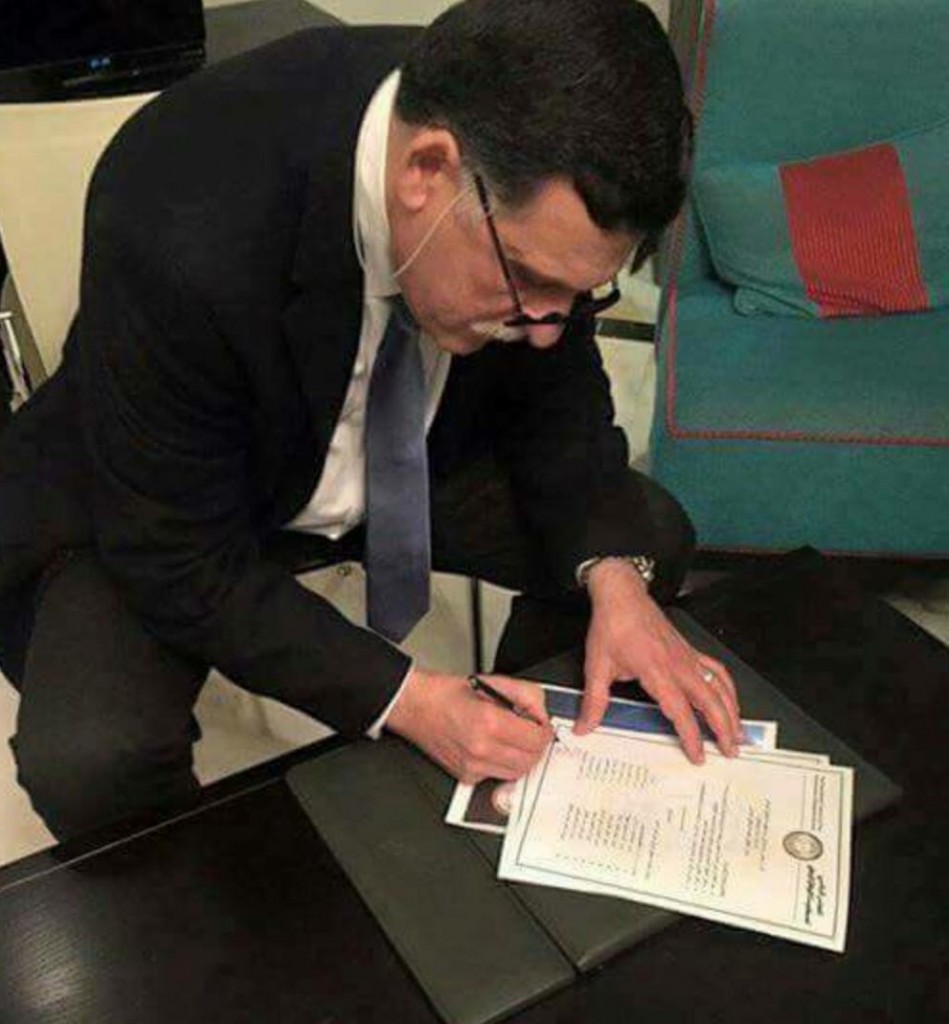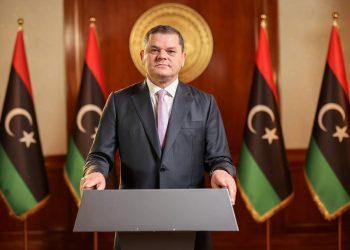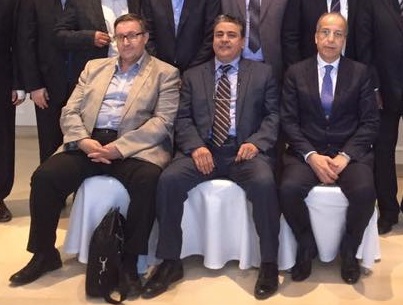By Libya Herald reporters.

Tripoli, 17 May 2016:
The Presidency Council, headed by Faiez Serraj, has told the Government of National Accord (GNA) . . .[restrict]to start working in Tripoli. Clearly believing that there was no point waiting any further for formal authorisation from the House of Representatives (HoR) on the basis that it may never happen, it made the announcement today although it was dated 14 May.
There are no changes to the names of the ministers announced three months ago, although it appears from the statement that the five ministers of state with special responsibilities, are now regarded as full cabinet members – making a government of 18 ministers rather than the original 13.
To these have to be added the nine members of the Presidency Council: the prime minister, five deputy prime ministers and three other ministers with general responsibilities (full list is below).
The government go-ahead, without the parliamentary approval, follows a similar move by the State Council which declared itself up and running early last month despite not being voted into existence by the HoR through an amendment to the 2011 Constitutional Declaration.
The move had been expected. The Presidency Council is to to have been worried that the initiative was slipping out of its hands because of the constant delays in the HoR holding a vote on the GNA.
As it is, the ministers are already in control of their own ministries in Tripoli and have been working with them for some weeks, and the EU formally recognised the GNA last month, offering it help on security.
Today’s move came as the international community was meeting with the Presidency Council in Vienna to look ways of supporting it. It also followed the announcement just over three weeks ago by a hundred members of the HoR led by its two deputy vice presidents, Emhemed Shouaib and Ahmaid Huma, that they wanted to approve the GNA but were being physically prevented by those opposed.
Yesterday there were reports that HoR President Ageela Saleh, sanctioned by both the EU and the US and accused of being deliberately impeding the vote on the GNA, had met in Beida with his two estranged deputies, in a fresh bid to break the deadlock. It was said that Saleh demanded extra ministries be set up and given to Cyrenaicans in return for approving the government.
The Presidency Council’s announcement authorising the GNA is likely to be ignored throughout the east of Libya. Russia has said it would not recognise it until it was formally approved by the HoR.
Full list of the Government of National Accord:
- President of the Presidency Council of the Council of Ministers and Prime Minister: Faiez Mustafa Al-Serraj
- Vice President of the Presidency Council of the Council of Ministers and Deputy Prime Minister (West): Ahmed Omar Maetig
- Vice President of the Presidency Council of the Council of Ministers and Deputy Prime Minister (East): Fathi Abdulhamid Al-Mejbri
- Vice President of the Presidency Council of the Council of Ministers and Deputy Prime Minister (South): Musa Al-Kuni Balkani
- Vice President of the Presidency Council of the Council of Ministers and Deputy Prime Minister (East): Ali Faraj Gatrani (but boycotting)
- Vice President of the Presidency Council of the Council of Ministers and Deputy Prime Minister (South): Abdelsalam Saad Hussein Kajman
- Minister for the Presidency of the Council of Ministers and Legislation Affairs: Omar Mohammed Ahmed Al-Aswad (but boycotting)
- Minister for Specialized Councils Affairs: Mohamed Ammari Mohamed Zayed
- Minister for Civil Society Affairs: Ahmed Hamza Mahdi
- Justice: Juma Abdullah Drissi
- Interior: Arif Salih Khojja
- Foreign Affairs: Mohamed Taha Siala
- Finance : Fakhr Muftah Bufernah
- Defence : Mahdi Ibrahim Al-Barghathi
- Local Government : Bidad Gansu Massoud
- Health: Omar Bashir Al-Taher
- Transport : Milad Mohamed Matouk
- Social Affairs: Faida Mansour El-Shafi
- Planning: Al-Hadi Al-Taher Al-Juhaimi
- Economy and Industry: Abdulmutalib Ahmed Abu Farwa
- Education: Mohamed Khalifa Al-Azzabi
- Labour: Ali Galma Mohamed
- Women’s Affairs and Development: Amsa Mustafa Usta
- Martyrs’ Families, Wounded and the Missing: Muhanad Said Younis
- Institutional Reform: Iman Mohammed Ben Younes
- National Reconciliation: Abdeljawad Faraj Al-Obeidi
- Migrants and the Displaced: Yousef Abubakr Jalalah
[/restrict]








